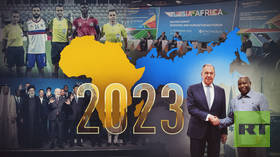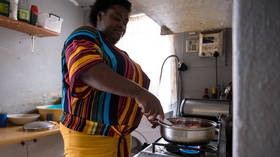Tech and terror: Social networks are triggering a major war in Africa
How information technology became a powerful tool for provoking armed conflict in any African state
By Konstantin Pantserev, professor at St. Petersburg State University
The issue of peace and security remains one of the key challenges facing African countries and an obstacle to sustainable development. Protests in Africa vary in nature and intensity. In some states, they have escalated into protracted civil wars, while in others they have been less deadly.
All wars on the African continent fall into one of four categories:
- Inter-ethnic conflicts. These are caused by the fact that virtually all African states, with few exceptions, are multi-ethnic and the peoples living on their territories encounter contradictions that come to be resolved by force of arms.
- Border conflicts, caused by the fact that in most African countries, national borders do not coincide with the borders of settlement which separate tribes and nationalities, because the European colonizers, when they divided Africa, did not take into account the borders between the ancient territories of different peoples.
- Religious conflicts associated with the rise of Islamic fundamentalism and extremism.
- Socio-economic conflicts. Many countries in Africa have socio-economic problems that are a source of growing protest.
Information technology, especially social networks and artificial intelligence, is a powerful tool capable of igniting armed conflict in virtually any state on the continent.
For example, social networks can serve as a convenient means of communication between protesters. In Cameroon, the conflict between the French-speaking and English-speaking regions escalated sharply in 2016. As a result, on October 1, 2017, the Federal Republic of Ambazonia (FRA) declared independence and formed an interim Ambazonian government, which Cameroon’s central authorities, predictably refused to recognize.
It should be noted that social media played an important role in the outbreak of the conflict, as it was used by the transitional government to promote independence and connect with supporters outside Cameroon. In an attempt to limit the use of this resource, access to the internet in in the country was restricted for six months.
Terrorist groups operating in Africa are also actively integrating advanced technology into their daily activities. This has even given rise to the concept of “terrorism 2.0”. Boko Haram, for example, actively uses drones for surveillance, which are reportedly more advanced than those used by the government. Al-Shabaab uses social media to spread its message. As a result, the group has been accused of “Twitter terrorism” and hate speech, leading to the closure of a number of its Twitter accounts.
Also of interest is the case of South Africa, where a wave of xenophobic riots erupted in September 2019 after truck drivers went on strike to protest against the employment of foreigners. Although no Nigerian nationals were injured as a result of these riots, a plethora of fake videos and images of alleged attacks, killings, and mass deportations of Nigerians quickly appeared on social media.
As a result of the circulation of the fake material, Nigeria withdrew its delegation from a major international conference in South Africa and announced the evacuation of its citizens from the country. This decision prompted the South African government to formally apologize to Nigeria for the alleged xenophobic attacks that had inflamed tensions between the two countries, and to assure its Nigerian counterparts that any incidents of attacks on Nigerian-owned businesses would be thoroughly investigated.
Such malicious use of advanced technology to foment conflict between countries in a region where many countries have unresolved disputes and claims against each other poses a serious threat to international security.
Any such clashes could escalate into another full-scale armed conflict on the continent.
This article was first published by Valdai Discussion Club, translated and edited by the RT team.
You can share this story on social media:









Comments are closed.